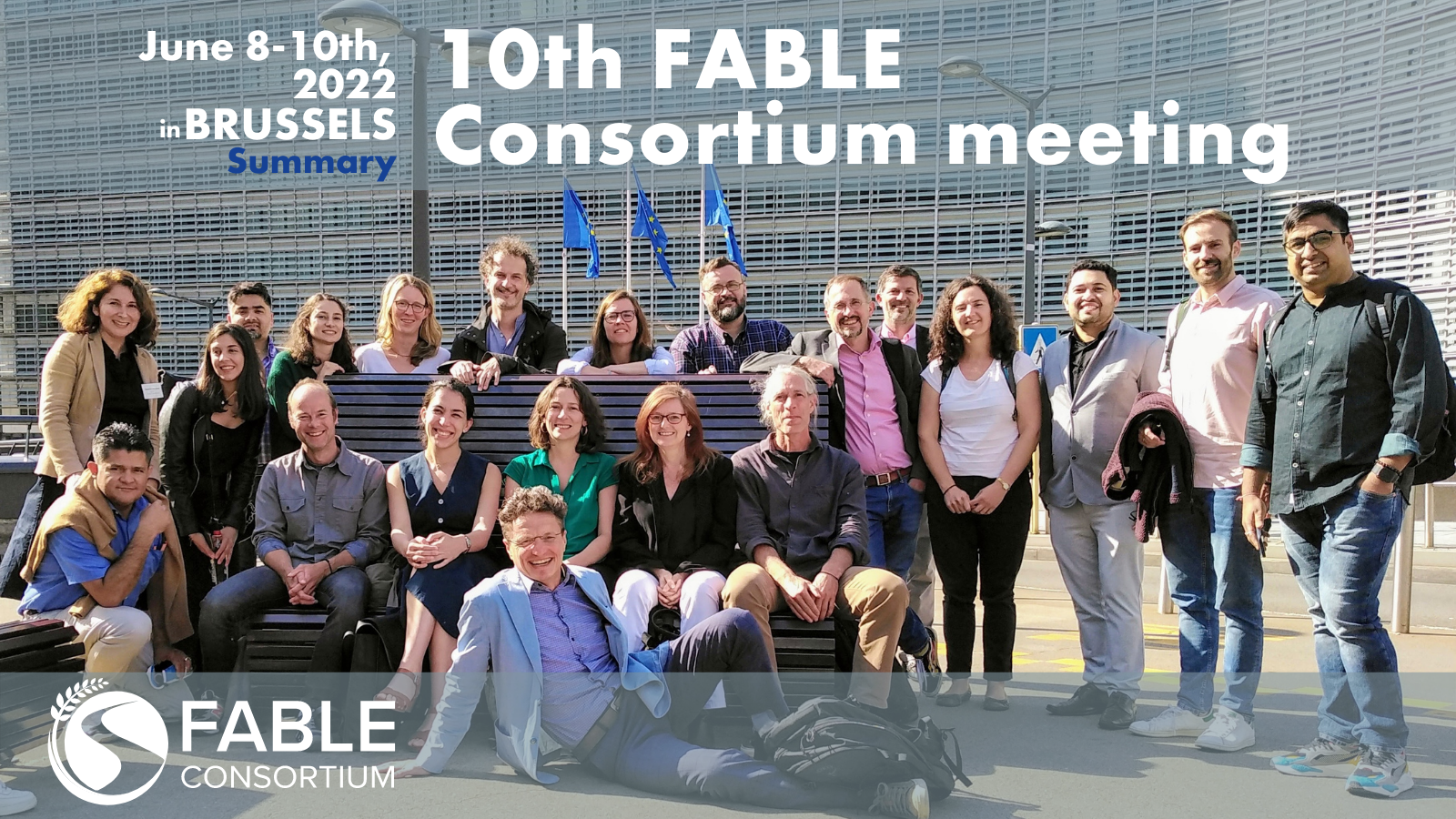
From Farm to Fork
On 8-10 June, the FABLE Consortium held its 10th meeting of the country teams. The meeting kicked off with the EU Policy Workshop ‘Farm to Fork: How to make it work for Europe and the planet’, in collaboration with the FELD Action Tracker and the European Economic and Social Committee (EESC). Over 60 participants from FABLE country teams, the FABLE Secretariat (composed of SDSN, IIASA, Bioversity International, and the Potsdam Institute for Climate Impact Research), the Food and Land Use Coalition (FOLU), and other partner organizations met to take stock of the Consortium’s model developments, policy engagement and goals for the coming year.
This was the first time the Consortium met in a hybrid format, following two-year pause of in-person meetings. Country teams from Argentina, Brazil, India, Mexico, Norway, Sweden, the US, and the UK traveled to Brussels to participate in person, while the rest of the teams joined the sessions virtually. The Secretariat opened the second day giving an overview on the achievements for the past year, including FABLE’s first policy briefs using integrated analysis of food and land-use systems to assess dietary shifts and biodiversity targets.
This was followed by a session on how models inform agriculture, climate, and biodiversity policies, focusing on experiences in the EU. The session was led by two guest experts: Aled Jones, from Economics of Energy Innovation Systems Transition (EEIST), who spoke on how policymakers think of modeling based on country case studies that show how policy appraisal works in the context of the energy transition; and Giampiero Genovese, Joint Research Centre (JRC), who spoke about how the EU Commission uses models for policies such as the post-2020 EU Common Agricultural Policy (CAP) reform.
The discussions underlined the need to work more on integration of models for the systemic approach of sustainable systems, overcome the challenge of the policy language and the importance for modelers to generate a narrative closer to policymakers.
FABLE's ambitions for the upcoming year
The teams then turned to opportunities for building out the Consortium’s work ahead of the United Nations Framework Convention on Climate Change in Sharm El Sheikh (UNFCCC COP27), which will be held in November 2022. Specifically, the teams explored options to use their national pathways for sustainable food and land-use systems to enhance the appraisal of the AFOLU sector in countries’ revised Nationally Determined Contributions (NDCs).
FABLE country teams and the Secretariat shared their progress on technical developments for integrated analysis of food and land-use systems, including a spatially explicit tool, agricultural costing calculator, and a subnational calculator. Other developments will allow FABLE to enhance its assessment of critical components of sustainable food and land-use systems, such as forests, organic farming, and agroecological practices.
Lastly, the Secretariat shared preliminary results from the 2022 Scenathon that aims to assess the impacts that the war in Ukraine has on global agri-food trade and on meeting global sustainability targets.
For more information, questions or other inquires, email us at info.fable@unsdsn.org